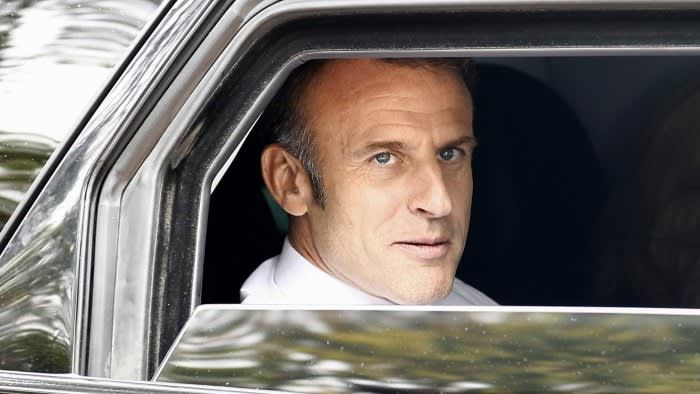France’s minorities pay the price of a polarising election campaign

Get access to the Editor’s Digest without any cost
Roula Khalaf, the person in charge of editing at the FT, chooses her top stories to feature in this newsletter that comes out every week.
Based on the outcome of the recent election on Sunday, it appears that French politicians are able to put their disagreements aside in order to prevent the far right from gaining control. Moving forward, they will need to come together once again to address and repair the increase in hate crimes committed by extremists during the campaign.
The far-right Rassemblement National, a party that has been rejected for not aligning with French republic’s beliefs, did not succeed in gaining control. However, it still received over a third of all votes.
The movement empowered radicals during a period when relations in French culture were already strained. Minority groups were the initial victims as incidents of hate crimes increased.
Since June 9th, we have received a significant increase in the number of reports of racist or antisemitic language and actions. This surge in reports is believed to be a result of the current political climate, according to Tina Théallet, who speaks on behalf of Licra, the International League against Racism and Antisemitism.
Just over a week after the election was announced, two adolescent boys were accused of raping a 12-year-old Jewish girl. Incidents of antisemitic behavior had been on the rise following the Hamas assault on Israel in October and tripled from January to March compared to the first quarter of 2023, as reported by the authorities.
More hate crimes are being discovered. Karim Rissouli, a reporter for France 5, got a letter at his house that said: "People in France are tired of people from North Africa. Real French people will never accept you or your brothers, no matter how many of you there are."
Mohamed Bouhafsi, a French journalist of North African heritage, was targeted with abusive comments on social platforms. Bouhafsi mentioned that this kind of behavior was not present during the 2022 presidential campaigns. However, he revealed that he was experiencing such negativity more frequently, with three or four hurtful messages coming his way daily compared to just once a month before June 9.
Other cases that were reported include an incident where a French teenager of north African background was almost drowned by individuals who insulted him as a "dirty Arab". In Chatou, a town close to Paris, leaflets were found that read "Stop Black people". Additionally, there was an instance where supporters of the RN party were filmed shouting racial slurs at their black neighbor, telling her to go back to where she came from and referring to her home as their own.
Following the loss of the extreme right-wing group, the excitement of its followers is now shifting to anger, which could potentially lead to violent actions. Over the weekend, sportsman Melvyn Jaminet shared his discontent in a video on social media, where he mentioned he would use his helmet to physically harm the first person of Arab descent he encounters on the street.
Prejudice against immigrants from countries that were once under French rule has always been present. I recently found a video of my mom being interviewed in Marseille in 1986, discussing the increase in far-right groups. The footage revealed discriminatory messages like "Front National" and "Death to Melons" (a derogatory term for North Africans) written on the walls of the neighborhoods where many immigrants lived then and still live today.
Politicians have been using racial tensions to their advantage in order to win votes for a while now. Just recently, Jean-Luc Mélenchon, the leader of the far-left, has downplayed the increase in antisemitic crimes as he tried to appeal to Muslim voters.
However, prior to the second round of voting, there was a likelihood of a far-right government coming into power. This created feelings of fear and uncertainty that were likened by some French psychologists to the widespread distress experienced by their clients following the 2015 Paris terror attacks.
The situation in France is currently uncertain as there is a deadlock in parliament, making it difficult to determine how the country will be run until the next election, which could be held next year.
The protest against the extreme right took place in Paris and other cities during the campaign. However, the overall situation is not positive. According to a survey conducted by Ipsos, over half of the voters who backed the extreme right in the initial election round confessed to having some level of racism.
President Emmanuel Macron’s risky move may have not only revealed but also exacerbated divisions within French society. It is crucial for policymakers to begin addressing and healing these divides promptly. The outcome of this effort could significantly impact France’s future following the upcoming election.









































